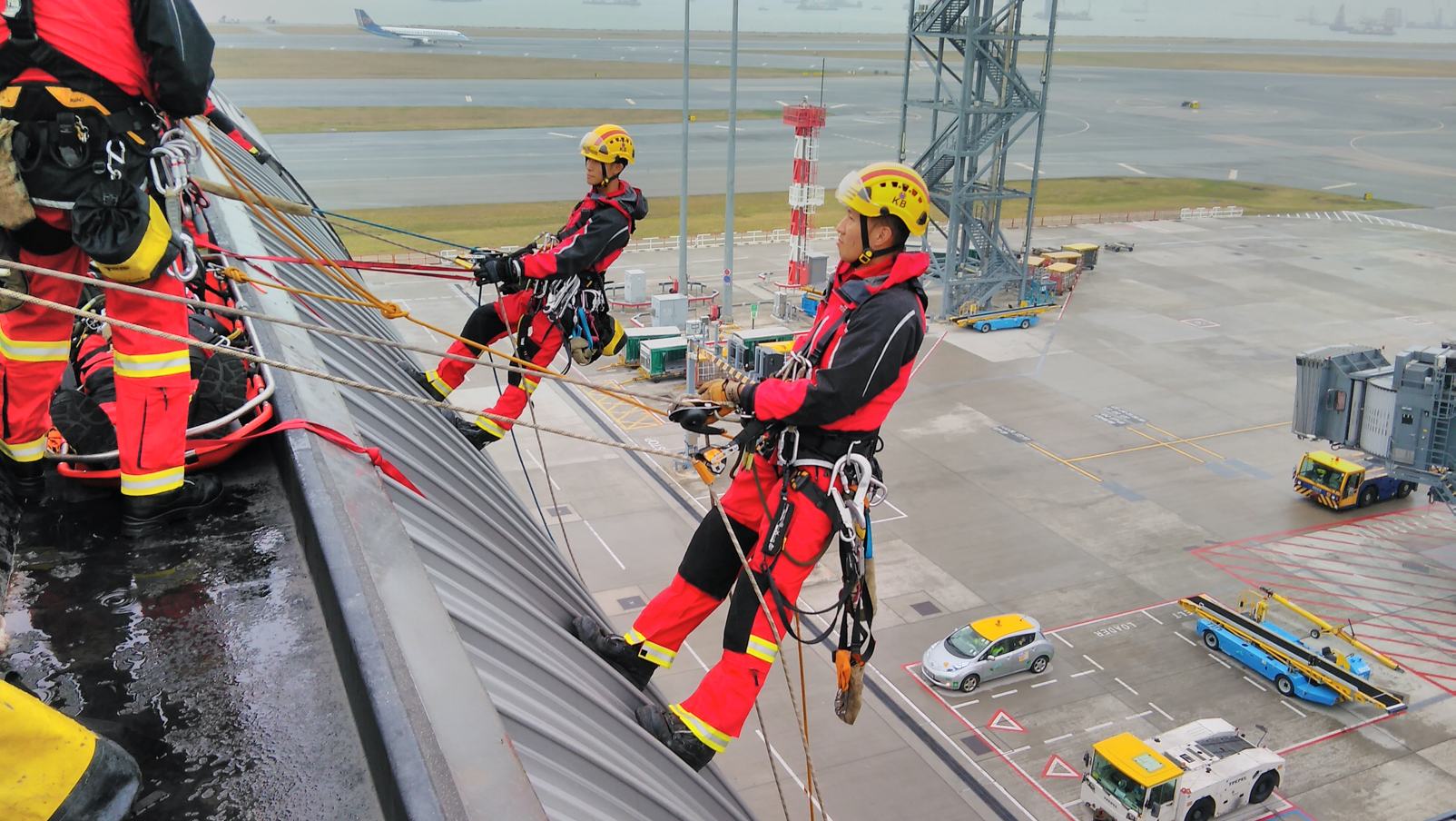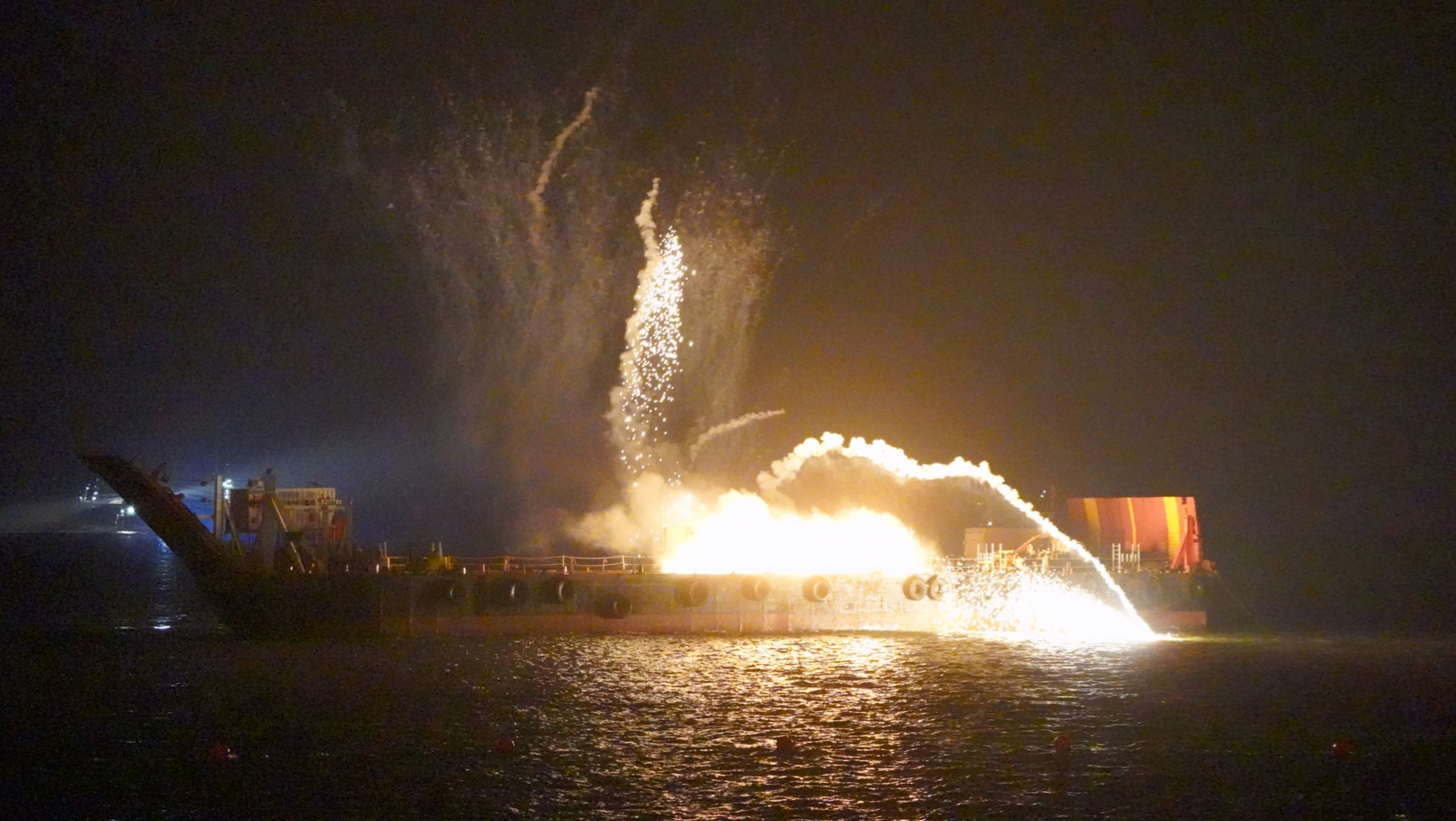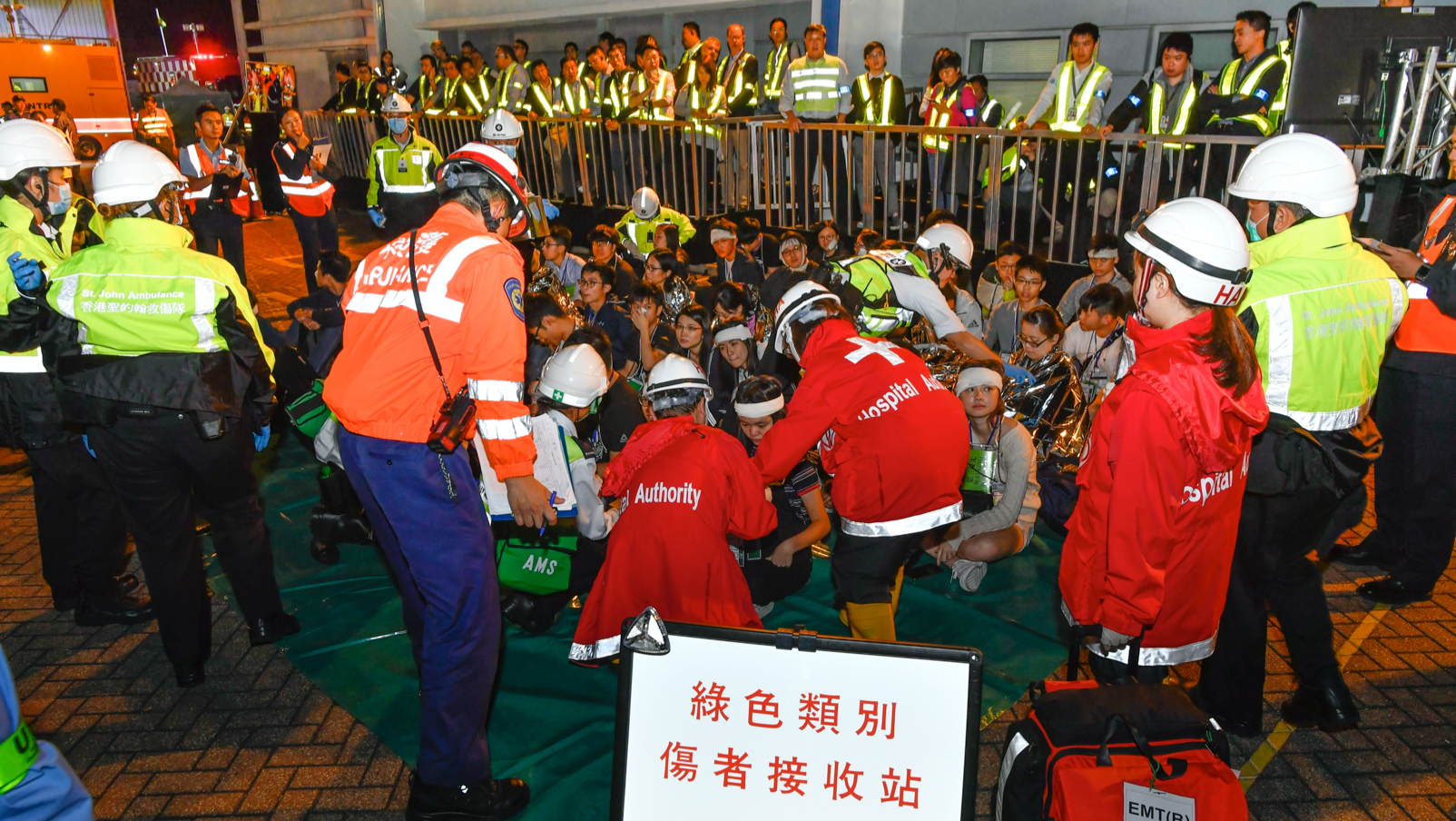Contingency Planning
Given the range of potential disruptions and crises that may affect the operations of HKIA, we have put in place systems and processes to predict, identify, manage and minimise the associated risks. With a view to strengthening the operational resilience of HKIA, we regularly test our contingency plans with AAHK employees and business partners to ensure the appropriate actions are taken in the event of a disruption or crisis. HKIA conducts more than 100 drills, exercises and training seminars each year covering a variety of operational disruption and emergency response scenarios, including severe weather, system failure, equipment malfunctions, public health incidents and security issues in order to improve our response capabilities.
Key initiatives
- Business continuity – A two-year programme to add ramp handling to HKIA’s business continuity plans was completed in collaboration with the three ramp handling operators at HKIA.
- Climate resilience – Preparations for a climate resilience study at HKIA commenced in 2018/19. A cross-departmental steering committee was established with our Executive Director, Engineering & Technology as the Chair. The study will review and update HKIA’s operational resilience and adaptive capacity to a changing climate. We aim to complete the study in 2020/21.
- Crash and rescue exercise – The annual drill was conducted in November 2018 with over 1,000 representatives from AAHK, the airport community and Government departments to simulate an accident at the Three-runway System work site and test our emergency preparedness.
- Rescue preparedness – A series of rescue drills were conducted to fine tune our current strategy in response to situations at the Midfield Concourse. One of the new approaches tested resulted in a 20-minute reduction in casualty delivery turnaround time.
Q&A with David Jea, Senior Manager, Business Continuity Planning
Q:What are HKIA’s contingency measures for infectious disease outbreaks, such as measles?
As the operator of HKIA, AAHK has established a comprehensive preparedness and response plan related to public health and infectious diseases. Working in partnership with the Department of Health (DH) and the Port Health Division, AAHK developed a three-step response plan that is modelled after the Hong Kong government’s three-level response system for preventing the transmission of infectious diseases at HKIA. In the event of an infectious disease outbreak, we execute the plan and implement health measures corresponding to the alert level issued by the DH.
Q:What measures were implemented as a result of the measles cases at HKIA in March 2019?
While HKIA operations remained unaffected, we stepped up measures to ensure public hygiene as soon as DH announced the first case on 22 March 2019. These included increasing the frequency of cleaning and disinfection at heavy traffic locations in the terminal buildings, providing over 120 hand disinfectant facilities and surgical masks for staff, and enhancing the ventilation system in the terminal buildings.
Q:How did you coordinate and collaborate across AAHK departments, the DH and airport business partners to ensure public hygiene?
As more cases of measles were reported, we held daily coordination meetings with the relevant internal departments, representatives from the airport community, the airport medical centre and the DH. We supported the DH in conducting the first health-related talk at HKIA on the day when the first case was reported. The next day the first vaccination station was set up, followed by the measles serology test service starting on 29 March 2019 to determine whether people had immunity. We also assisted the DH in disseminating information on preventive measures to the airport community and passengers through electronic posters and leaflets throughout the terminal buildings. On 17 May 2019, the DH announced the conclusion of the outbreak, as no new associated cases were recorded in two successive incubation periods. Over the two-month period from March to May, over 8,500 airport staff received vaccination and 777 took a serology test.
Q:What are the lessons learned to improve our response in the future?
We have over 20 years of experience in operating the airport, during which we had responded to the Severe Acute Respiratory Syndrome outbreak in 2003. We also have a comprehensive and well-grounded system and process to predict, identify, manage and minimise the potential disruptions and the associated risks. As a highly contagious disease, measles presented a unique scenario to test our contingency plan. During review meetings after the outbreak, we identified several areas where we could improve our response to infectious disease outbreaks in the future in coordination with other parties. For example, strengthening communication and providing more comprehensive and updated information to our business partners could enable their staff to assess the level of risk, which would in turn help manage the limited resources, such as vaccines.
This continuous review and improvement process is key to optimising our business continuity plans and enhancing our ability to handle and respond to potential disruptions, with a view to maintaining the smooth operation of HKIA.


